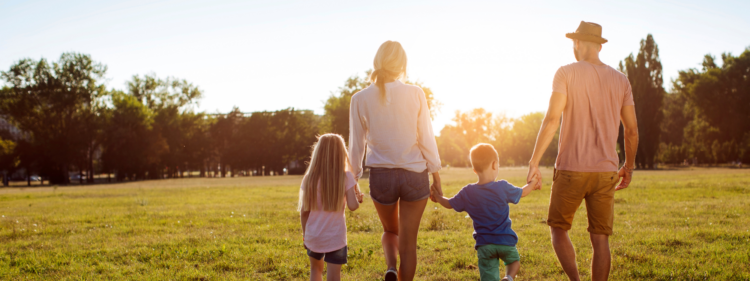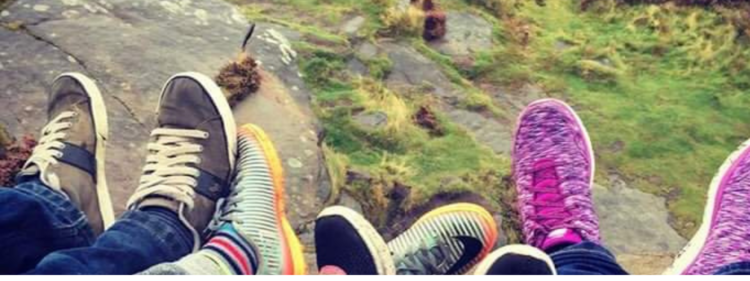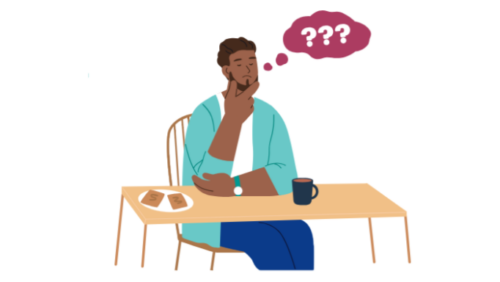Call us now 01926 402 498
How can Family and Friends Help a Survivor
At Safeline, we understand that providing support to loved ones in the time after sexual abuse or rape can be incredibly difficult.
Knowing that someone you care about has been hurt may leave you feeling overwhelmed. Often both survivors and their supporters struggle with feeling helpless and angry in the aftermath, and it can take some time to learn how to respond.
For many survivors, support is a crucial part of the healing process, and receiving compassionate and validating responses from friends and family can make a real difference.
You may have difficulty in knowing what to say or do to help your loved one. It’s okay to not have all the answers; non-judgmental listening and simply being there can be a wonderful support for the survivor. Let your loved one know that you care, that you don’t blame them, and that you believe in them.
Unfortunately, there are no quick or easy fixes for healing from sexual violence, so it’s important to be patient when the process seems to be taking what some consider to be a long time.
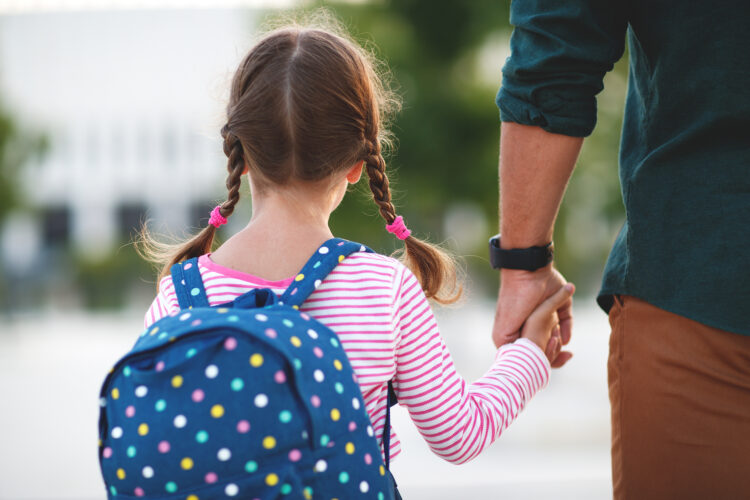
“When you hold them in your arms for the first time you swear you’ll never let anyone harm them at all. When I found out my teenage daughter had been abused, it felt like all my fault.
I’d let her down. We went for counselling together.
I know my baby girl will never be the same again, but we’re now at least talking. I know she doesn’t blame me, and more importantly, she doesn’t blame herself.”
Safeline Client
Families and Friends of Sexual Abuse and Rape Victims
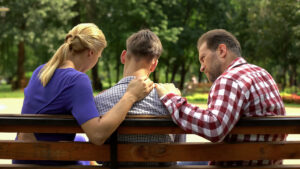
It is terribly distressing for families and friends to see someone they love and care about in pain and suffering. It can make families feel completely helpless not knowing what to do or say.
Giving your support and being there for your loved one is a help to the person who has been raped or sexually abused. If they want to talk then knowing you are there for them will be a comfort. However, survivors can find it difficult to talk to people close to them and often this is to protect them from distress.
Never force information from a survivor of rape or sexual abuse and accept that they may not be able to talk to you about what has happened.
Be accepting of the fact that your loved one may have mood swings, may be depressed, may act as if nothing has happened, may cry constantly, may not want to leave the house, may have outbursts of anger – you can help your loved one by accepting how they are and not taking it personally if anger or frustration is directed at you.
You may be able to help in a practical way by accompanying your loved one when she/he goes out in order to help her/him build up confidence and feel safer.
It will mean a tremendous amount just knowing that there is someone around who they trust, someone who loves and cares for them. You can always ask how you can help, if there is anything you can do. Someone who once enjoyed closeness and hugs may not want close physical contact for a while – again don’t take this personally.
On the other hand someone who has been raped or sexually abused may want a comforting hug more than anything so don’t be afraid to ask if there is anything you can do to help.
You may find that you yourself need some support and many of the agencies who provide support for victims of rape, like Safeline, will also provide support to families and friends.
Partners of Sexual Abuse or Rape Victims

Many of the services which provide help and support to victims or survivors of rape or sexual assault, will also provide counselling for partners of rape or assault victims.
For a partner to see someone they love traumatised by rape or sexual assault, will naturally bring up all kinds of feelings and emotions in the partner. Many partners feel intense anger at the abuser, anger and guilt at themselves for not being able to protect their partner, and it can help to have someone to talk to for yourself whether that be a friend, family member, a helpline, or counsellor.
As a partner of a victim of rape or sexual abuse you will need emotional resources and resilience to support your partner and be there for them. Therefore, try and find a way of letting your emotions out in a safe way and get as much support for yourself as you can.
Your partner may not behave rationally, may one minute be bursting into tears – the next may seem to be going through the motions of everyday life as if nothing had happened. Your partner may have outbreaks of rage, aggression, anger, mood swings one minute and then be depressed, isolating themselves and not wanting any kind of physical or sexual contact.
How Can you Help Your Partner
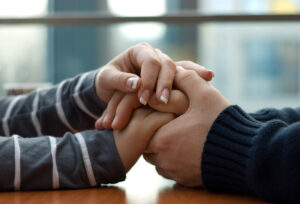
Don’t force your partner to tell you about what happened, but let them know you are there if and when they do want to talk. Ask your partner how you can help if they have panic attacks or nightmares, flashbacks, ask them what they want you to do.
Accept that your partner’s behaviour may be erratic and your partner may push you away and for some time may not want any kind of intimacy with you. Try to not take this as if your partner is rejecting you, your partner needs time to rebuild trust and confidence and heal from what has happened.
Be guided by your partner if she/he wants to be intimate and allow your partner to take control as much as possible and allow them to decide what they feel comfortable with and what they don’t feel comfortable with. Allow them to take things at their own pace.
Give your partner reassurance and always stop any sexual activity when your partner wants you to. Find out as much information as you can on the effects of rape and sexual abuse and how you as a partner can support that person. This can be found from the internet, from books, and again, get support from us for yourself if you need it.

